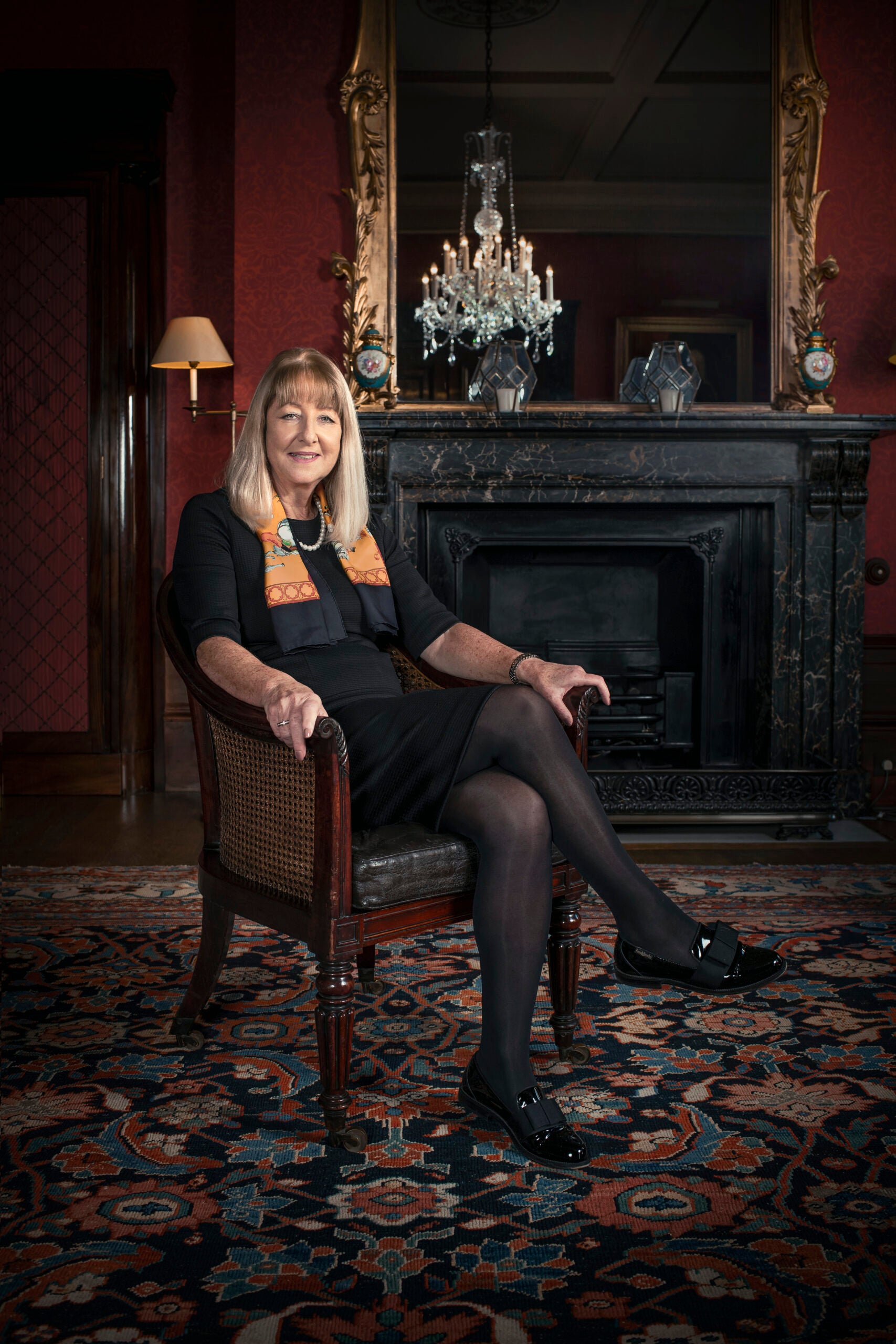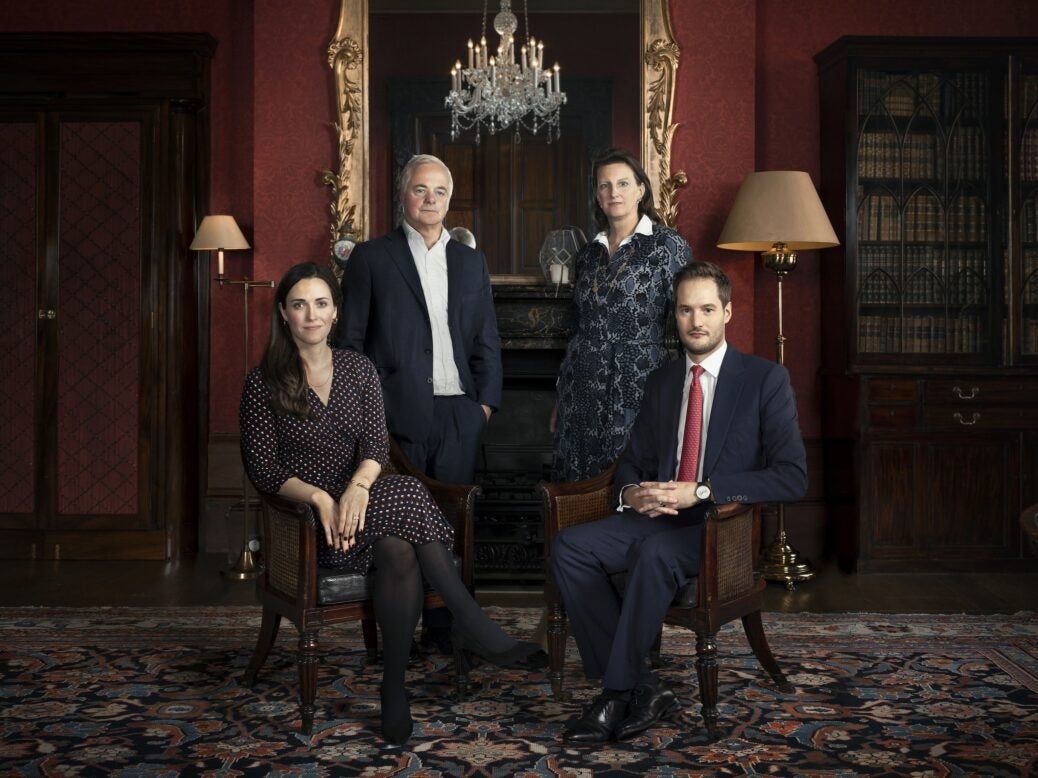
C. Hoare & Co. is the oldest family-owned bank in the world. On the eve of its 350th anniversary, its partners tell Spear’s Magazine’s Alec Marsh how surviving plagues, wars, market crashes – and a generation of profligate ‘rotters’ – has shaped their plans for the next few hundred years…
When the goldsmith Richard Hoare set up shop on Cheapside in the City of London in 1672, Charles II was on the throne. The Dutch were in their pomp; Europe was dominated by the Habsburgs; and the Ottoman Empire, then stretching from Iraq to the Balkans, was locked in mortal combat with the Doge in Venice in a struggle to control the eastern Mediterranean.
Some 350 years on, the business that young Mr. Hoare established, which soon evolved from a goldsmith’s into what we would recognise as a bank, is still going strong. It may even be in better health than ever.
It is not the oldest bank in the world. Banca Monte dei Paschi di Siena in Italy was founded in 1472. Berenberg Bank was founded in 1590 by Hanseatic cloth merchants. And the Sveriges Riksbank, or Swiss central bank, began life in 1668. Yet since Berenberg is no longer solely in family ownership, C. Hoare & Co. has the distinction of being the oldest family-owned bank in the world.
Richard Hoare was born in 1648 – the year before Charles I was executed on the scaffold at Whitehall. He apprenticed to a goldsmith in 1665 – the year the great plague wiped out one in eight Londoners. He rose to become a freeman of the Worshipful Company of Goldsmiths in 1672, which accorded him the right to practise as a goldsmith himself. In those days goldsmiths acted as bankers, initially because they had the means of securing high-value items, but also because they were already well established as lenders to those in need of cash.
By the time the Bank of England came into being in 1694, Hoare’s career was well under way. Within a few years he had been knighted by Queen Anne, become Lord Mayor of London and been elected an MP for the City. When he died at the age of 70 in 1719, the bank bearing his name had amassed an elite, mercantile and blue-blooded roster of clients (including Samuel Pepys, who left him a mourning ring in his will). In his estate Sir Richard left diamonds and pearls valued at £24,800 (£5 million in today’s money), though the bank’s loan book was worth considerably more.
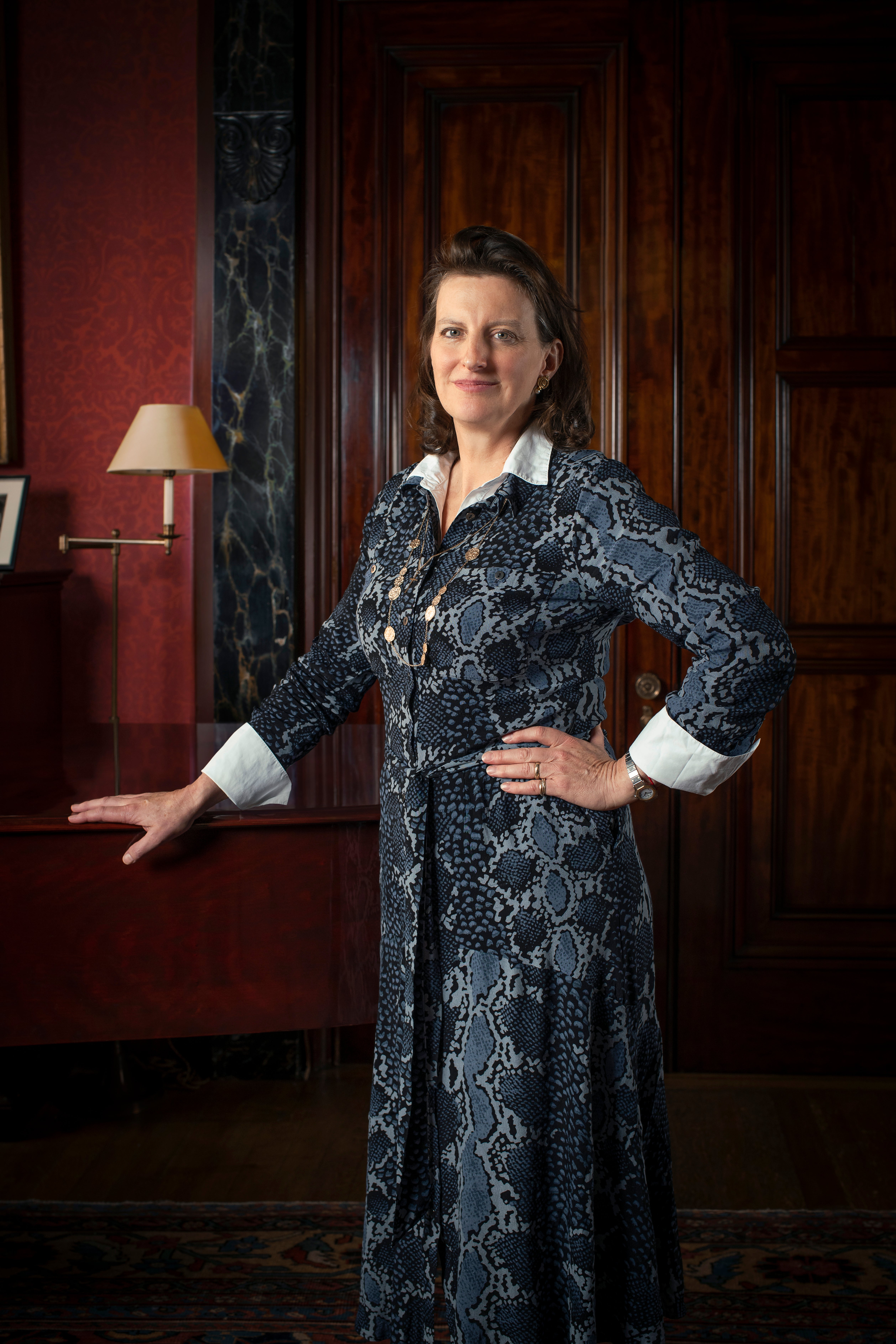
In 1690, the bank moved to Fleet Street and it has done business there, under the famous sign of the golden bottle, ever since. Today, it remains under the watchful eye of Sir Richard’s descendants.
The bank now has around 15,000 customers – including many of the largest landowning families in Britain. When, in 2019, it opened its first branch outside London (in Cambridge) and its third in all, one City wag noted: ‘The joke is they open a new office every hundred years.’ But despite its relatively small physical footprint, Hoare’s customers, reputation and history make it a giant in the world of private banking.
Its coffers are healthy too. With the value of the share capital at a record £398 million according to the last annual report, the bank holds deposits of £5.54 billion, of which £1.7 billion is held with the Bank of England. This gives C. Hoare & Co. a capital ratio of 21.6 per cent.
‘We have a very strong balance sheet,’ the bank’s recently appointed CEO, Diana Brightmore-Armour, tells me with relish when we meet in a beautifully furnished meeting room at the bank’s Fleet Street HQ, along with four of the bank’s seven partners.
Six of the seven partners are 11th- generation descendants of the founder, while the seventh is the first of the 12th generation to be recruited: Amy Rodwell, 31, who was appointed last November. As well as being the 50th partner in the bank’s history (and only the third woman), Rodwell, an Arabic graduate from Leeds University, is also the first non-Hoare-surnamed family member to be a partner. This marks a change in tack, notes Alexander Hoare. He adds, though, that finding the brightest and best family members has been part of the C. Hoare & Co. formula from the beginning. The founder himself deviated from the norms of the day to exclude his eldest son – now known in the family as Naughty Richard – from the partnership, because he thought he wasn’t up to it.
‘You don’t want people who’ll just treat it as a nice sinecure,’ says Alexander. ‘You want people who’ll own it. I am looking for people that are quite capable enough to have good careers anywhere, not people who have got the right gene pool.’ In the case of the Hoare banking dynasty, there is a stark reminder of this in the memory of the seventh generation of partners – ‘rotters’, according to Venetia Hoare – that really let the side down.
Henry Junior of Iden was one of the seventh generation. His disastrous overseas trading speculations amassed a debt of £196,546 (about £22 million today) and brought the bank close to financial ruin in 1874. He was sent to New Zealand – where ‘despite going bankrupt he had a jolly nice estate’, according to his great-great- granddaughter Venetia. ‘His wife lived to 100; she reputedly said she would trust him with her body but not her money,’ she laughs.
Another was Charlie Arthur, whose passion was for horses, not banking. He was eventually obliged to retire after a court case surrounding his scandalous affair with a younger woman, but he did so while retaining a half share in the bank’s profits. (A striking equestrian portrait of him in hunting pink with his hounds by John Charlton can still be seen in the bank.)
‘They tore through fabulous landed estates, art collections – Titians, Poussins, Canalettos – unbelievable wealth destruction, stately homes and so on,’ says Alexander.
‘Fortunately they didn’t sink us,’ adds Rennie Hoare, who joined the partnership in 2016. ‘But it meant that we learnt a lot of lessons about how you construct a partnership, what you look for in a good partner. The learning from lessons and having people that remember those mistakes is also pretty fundamental.’
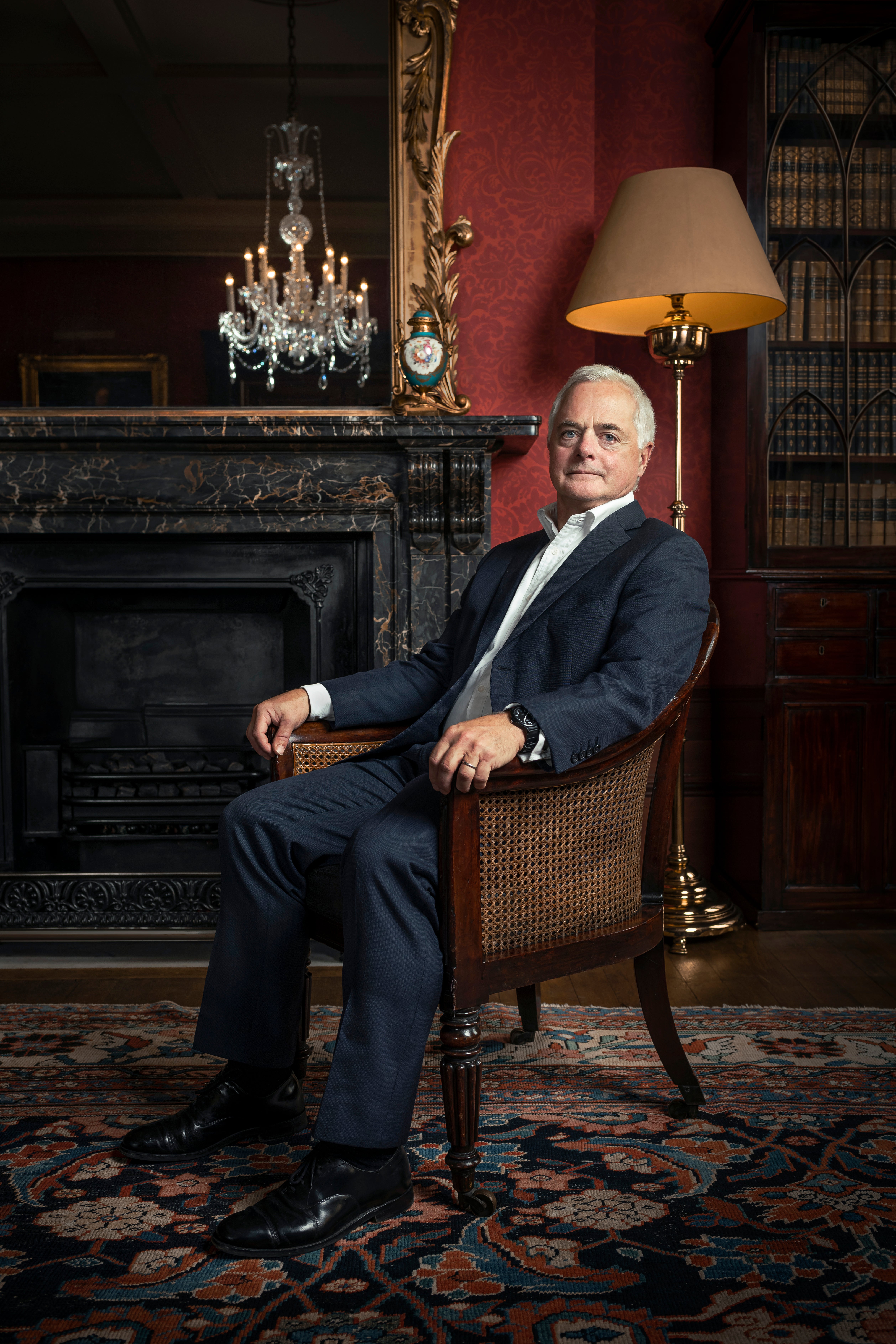
It fell to the eighth generation, largely appointed to the partnership in the 1890s, to pick up the pieces. The Eights were led by Henry of Ellisfield and Peter of Luscombe in Devon (Luscombe drinks are served at the bank today). Henry and Peter in turn handed the baton on to Rennie’s grandfather (also called Rennie). ‘It’s funny,’ remarks Venetia, ‘just in terms of wealth and attitude. After the hugely profligate time, people settled down slightly. Henry of Ellisfield lived a jolly nice life but it wasn’t flashy at all.’
Alexander agrees: ‘In truth it’s probably a good thing, because here we are today, we’ve got an 11th generation who are all working hard, rebuilding some family wealth from a very low base relative to what it had been before,’ he says. ‘I sense that too much wealth is a very bad thing in families; in fact that’s presumably why the seventh generation went off the rails; they were too rich and entitled.’
Henry of Ellisfield and his son Rennie, who became a partner in 1928, steered the bank through the aftermath of the Wall Street Crash and oversaw its structural reformation from a partnership proper to an incorporated company of unlimited liability – another important moment for the bank and its survival.
In addition to the new structure, the eighth generation made another fundamental contribution: they didn’t sell up. In the aftermath of the First World War, private banks were selling like hot cakes. Coutts, which had dissolved its own partnership in the 1890s, was sold to the National Provincial Bank, later NatWest, in 1920. Then Child & Co, founded in 1664, was sold by the Jersey family in 1924 to Glyn, Mills & Co. In the same year Drummonds, which had been going strong since 1717, was sold to the Royal Bank of Scotland. Meanwhile, Goslings, a Fleet Street bank founded in 1690, was part of the merger that created Barclays in 1896.
Why didn’t Hoare’s sell? We know they were tempted – Henry C. Hoare, writing in 2005, noted that ‘there was enthusiasm for sale within the partnership’, especially from one of the partners who was childless. Venetia wonders if the damage wrought by the seventh generation was a factor. ‘When a lot of the banks were selling up in the 1920s, I think for about 60 to 70 years, we’d drifted along… over the period of a hundred years our deposits hardly grew.’ With a laugh, she adds: ‘So we were small and uninteresting when the other banks were selling.’
In fact, talks of amalgamating with other private banks did take place but came to nothing: ‘Harry Hoare [Henry of Ellisfield] does not feel at all attracted by a scheme of amalgamation,’ notes one record. ‘His view is that our business is very largely a personal one and this personal influence would be to an extent lost by an amalgamation, which loss would only be compensated for by a very large increase of capital and this would not occur,’ resulting in the bank ‘losing our independence without acquiring any real additional strength’.
A century on, the 11th generation of partners is similarly reluctant to cash out. ‘You absolutely don’t want to be the ones who sell out,’ says Venetia, who became a partner in 1996 having worked at Barings bank. ‘There’s too much history. There are all sorts of people I couldn’t look in the eye – our customers, all our colleagues, the next generation. And what would you do? We’ve got this gem of a business that gives us the most amazing opportunities – why would I sell? Yes, you’d have a lot of money, but what would you do with it?’
Since the earliest days of Hoare’s, the bank’s partners have sought to use its wealth to support good causes. Back in 1721 the second Hoare to lead the bank, the founder’s son Henry (known as ‘Good Henry’), was instrumental in the opening of the Westminster Infirmary, which offered free medical care. It was revolutionary, and the bank maintained connections with Westminster Hospital for the next 200 years. In 1985 the family founded the Golden Bottle Trust, which receives 10 per cent of the bank’s annual profits (it is known as ‘the extra partner’) and is committed to philanthropy and impact investing. In 2020 the bank, which charges its partners and employees to be ‘good bankers and good citizens’, donated £1.5 million to the trust.
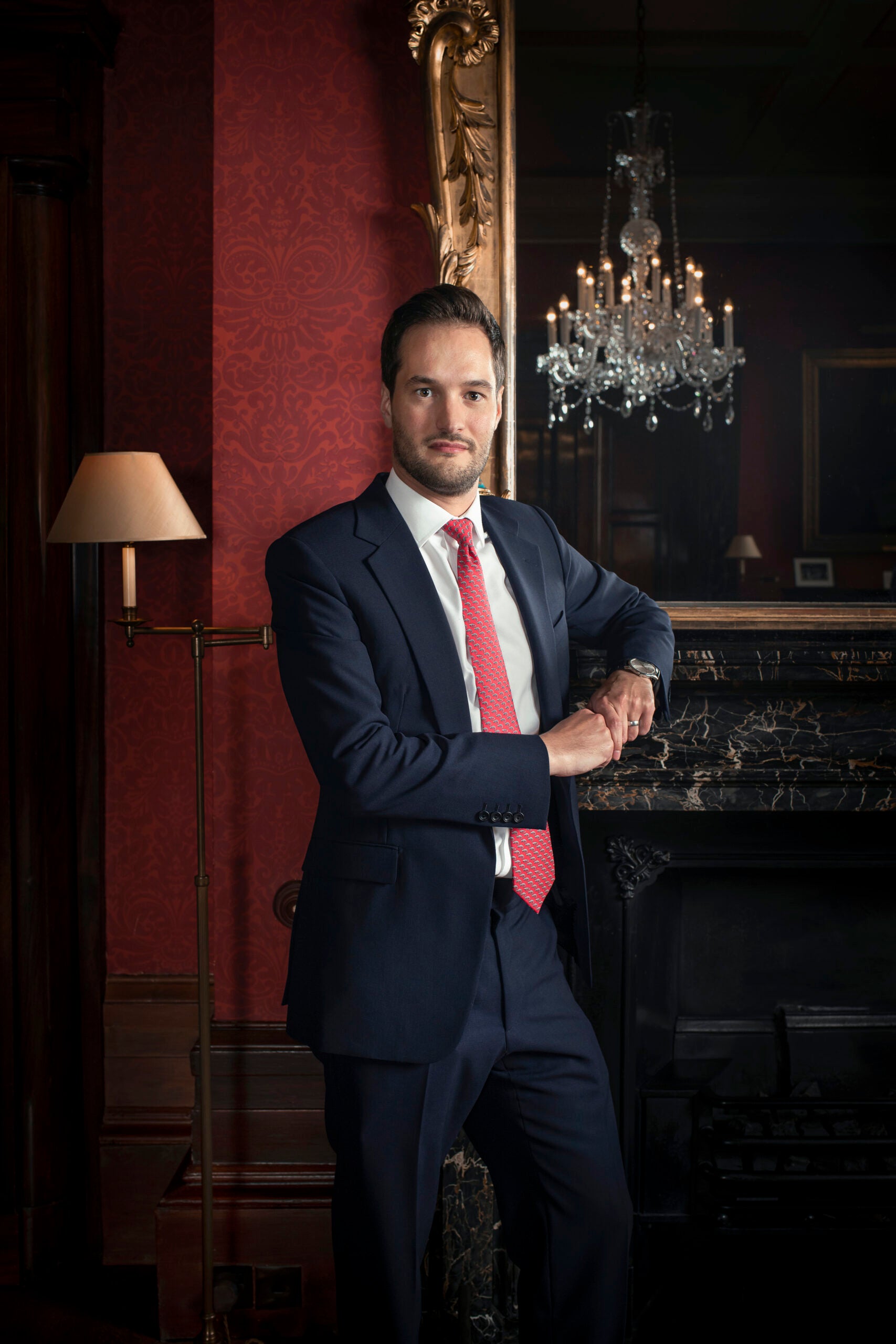
But it takes more than philanthropic zeal to keep a family business together for so long. Fortunately, the governance of the firm is designed to keep it going – in two principal ways. First, the rule that only partners can be shareholders reduces the chance of individual shareholders losing interest if they are not closely involved. Second, having unlimited liability status means partners are personally exposed to risk. If a run-of-the-mill limited liability company or a plc loses money, losses are generally confined to the business. But C. Hoare & Co. partners would be on the hook, personally, if the company were to go into the red.
‘Because of our structure with unlimited liability we are all active in the business and want to know what’s going on. I think that is very unusual,’ says Venetia, who sits on the bank’s lending committee. Unlimited liability works to the customers’ advantage too; when the pilot of the plane faces the same peril as the passengers, it tends to focus the mind. As a result, when the global financial crisis struck, Hoare’s experienced a run to the bank.
During his tenure as chief executive, Alexander recalls people telling him the partners were mad to operate with unlimited liability. ‘Come 2008 they started looking for an honest banker with a clean balance sheet: the money came pouring in.’ The bank’s deposits increased by 21 per cent in 2008, followed by 16 per cent 2009. In both years the bank was profitable, too.
Since unlimited liability means partners must depend on one another’s capabilities and performance to a degree rarely seen in other businesses, the recruitment of new partners takes on a special significance. It’s about ‘making sure that the people that join the partnership have the right culture, the right values, the right attitude to risk, and that you are happy for them to put their signature on a £10 million loan’, says Rennie. At just 35 he has the prospect of being a partner for several decades to come – which may be why he also emphasises the importance of getting along. ‘The other side of it,’ he says, ‘is then you want to really enjoy their company – for the next 35 years.’
‘We spend a lot of time on succession planning – it’s like one of four items on our job description,’ explains Alexander, sitting in a wingback chair in the private family rooms above the ‘shop’, as the Fleet Street branch is called. ‘One would be to know the customers, another would be to know the staff, a third would be to know the risks we’re running, and the fourth would be succession.’
The partners keep in touch with the family’s database of more than 2,500 Hoare cousins – all direct descendants of the founder – through arts and philanthropic events and a City Hoare network run by Rennie. ‘We have monthly minuted partners’ meetings and succession is an item on the agenda pretty frequently,’ adds Rennie. ‘If it wasn’t we would be neglecting one of the core things of being a family business. The critical part inside a family business is that you’ve succeeded when you are succeeded.’
It then becomes a question of talent. ‘Within the 3,000 or so cousins, you only need half a dozen but you want some bright ones,’ says Alexander. ‘So within the nepotism of a family business – a family business is nepotistic by definition – there is some meritocracy going on.’ As a result, parent-to- child succession is not a given. While partners Bella and Simon’s fathers were both partners, Alexander and the newest partner Amy have to go back 200 years or more to find a partner in their direct lines (although Alexander’s grandfather Bertram was the Fleet Street air warden during the war and is credited from saving the bank from being burned down).
Alexander became a partner in 1987. He was working as a management consultant when he got a figurative tap on the shoulder: an invitation to lunch with the partners. ‘I didn’t realise it was a coded job offer,’ he says. ‘So they had to invite me back and lay it on a bit thicker.’ Still, though, he demurred. This prompted the senior partner at the time – Henry C. Hoare – to invite him back for dinner. ‘[He] laid on more money and prestige, and I listened politely, and then his wife said, would I help with the washing-up. She laid on family, duty and honour – and hooked her fish.’
Alexander was made partner while still in his twenties, and went on to become chief executive in 2000. Under his leadership the bank moved ‘off some very old-fashioned banking systems’ and on to a modern platform – what he describes as a ‘big call’. Another big call was building up the bank’s wealth management proposition – in part as ‘an alternative to interest rate margin’, according to Venetia. In 2016, however, a decision was taken to sell this business to Schroders.
‘Retail bankers deal in known quantities of debits and credits, balances,’ explains Alexander. ‘Investment bods deal with future speculations. They’re completely different mindsets, so merging them was difficult.’
As well as the cultural misalignment, the wealth management business required a lot of time, drawing the attention of partners away from the core business of banking. Moreover, the company’s headcount had swelled to around 500 – beyond the limit of around 400, where the partners felt they could still know – and trust – all the staff personally. For Annamaria Koerling, who ran the wealth management division, the decision to sell came down to a question: ‘Do we want to be a wealth manager with a bank attached?’ The answer was no.
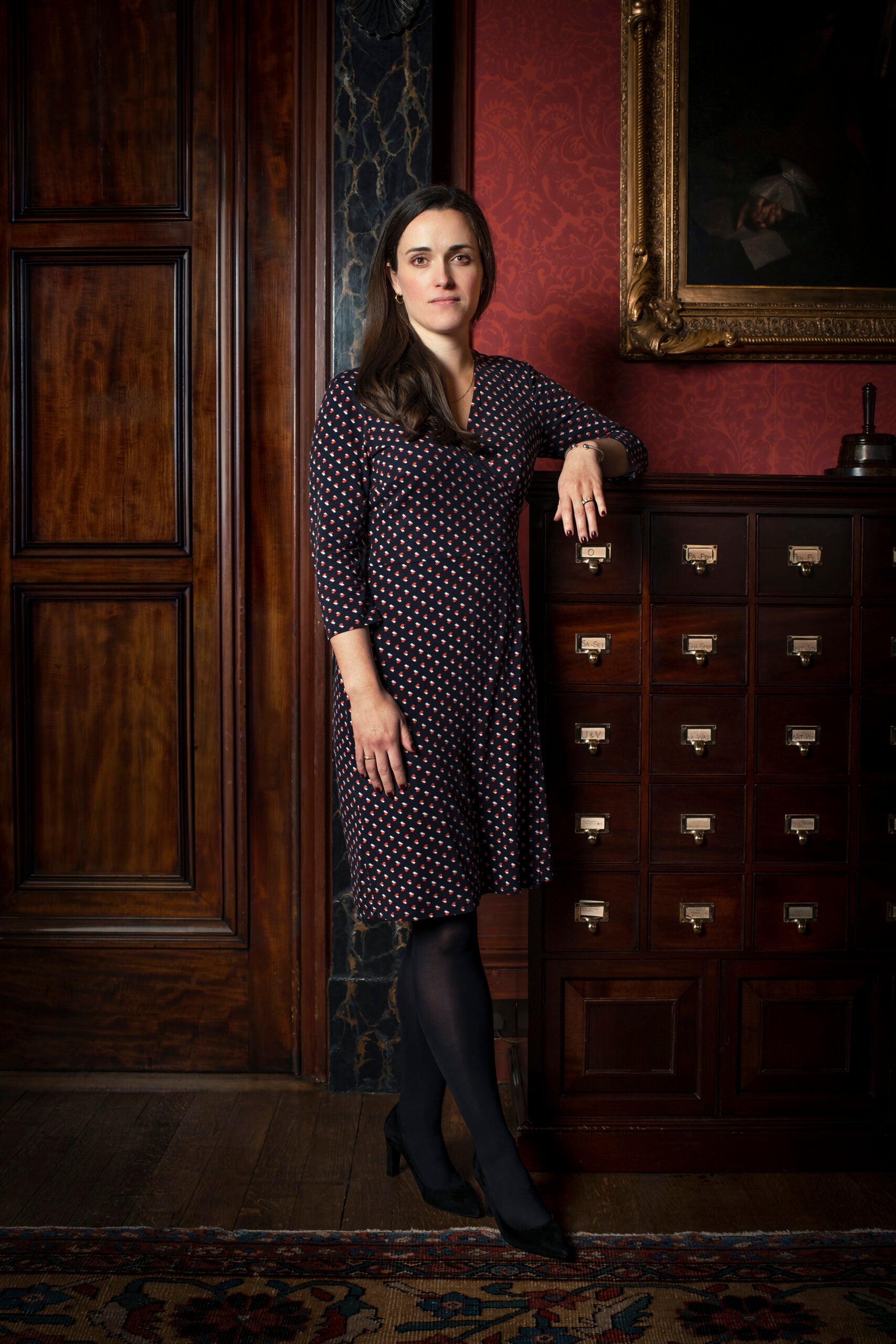
The sale netted £72 million for the partners, and allowed Hoare’s to focus squarely on what it knows best: private banking. ‘It was a huge decision,’ recalls Venetia, who admits she was not at first on board with it. ‘It certainly took a year to come to a decision, if not longer.’ One unforeseen consequence was that the phone started ringing from former competitors in wealth management who now felt happy to recommend C. Hoare & Co. as a banker.
‘One of my mantras, all my time here, has been “small is beautiful”,’ says Alexander, 59. ‘If you want to perpetuate a profitable family business you mustn’t let it get huge because the family won’t be able to deal with it.’ His other mantra, he says, is the ‘Kiss’ principle – keep it simple, stupid. ‘If you can keep the business small and simple you might just be able to hand it to the next generation.’
That said, Alexander, very much the present ‘senior partner’, admits that until recently he was concerned about succession. They had brought Rennie in – ‘the first millennial partner… a great ball of fire, fantastic’ – but though nearly 30 years younger, he is still a member of the 11th generation, the same as Alexander. ‘For some time I had this morbid fear of developing a good business and not being able to hand it on to anyone,’ Alexander says. ‘But I am now completely confident that the 12th generation will carry on.’
There’s something else the bank’s unique history provides: institutional memory. Rennie says the tenth generation had collectively worked at the bank for 182 years. ‘When my uncle Henry started working as a partner, the other partners had worked through the Wall Street Crash and remembered it directly. Being able to suck in and take that knowledge of what happens in moments of market exuberance or market capitulation doesn’t mean that you will never make mistakes, but you’ve got reference points.’
Alexander, who describes that Henry – Henry C. Hoare, partner from 1959 until 2018 – as his mentor (‘he taught me everything I know’), notes that having business owners active in the organisation for 30-plus years is another strength. He and Venetia have a better understanding of interest rate structures than most of their staff because they’ve focused on it for so long. ‘There are lots of customers who I’ve been dealing with for decades,’ he adds.
At the same time, there are some potential customers they wouldn’t touch. With unlimited liability hanging over their heads like the sword of Damocles, the partners see to it that at least one of their number meets each prospective client in order to vet them. How many have they rejected? ‘Thousands,’ says Alexander, who has previously summed the policy up as ‘no potentates’. What is the definition of iffy? He draws a breath: ‘We know the niche where we’re comfortable and it doesn’t involve people with their own private armies.’
The bank also tends to steer clear of the type of person who might be motivated by the prospect of having a smart chequebook – a stance that has surely helped to ensure that its name retains a cachet among those in the know. (One banker Spear’s spoke to noted: ‘People who think that Coutts is the smartest bank haven’t heard of Hoare’s.’)
But there’s a final test too: ‘The important thing is that if people aren’t nice to deal with, you don’t want to look after them,’ says Venetia. ‘However profitable they are, it’s not worth it. That’s the joy of a family business: you’re not always looking at the bottom line.’
That bottom line still matters, of course. But if C. Hoare & Co. is going to survive – and thrive – for another 350 years, it will need to ensure that its succession plan continues to put sufficiently capable people in charge. As things stand, one or two branches of the family dominate the partnership. Four of today’s partners have fathers who were partners, while Rennie has an uncle and a grandfather who were partners. Is this state of affairs indicative of a model that selects on merit alone?
Current partners point to the recent introduction of psychometric tests designed to select those most suited for the job. But still, possible applicants are drawn from the pool of around 2,500 cousins. James Hoare, a tenth-generation member of the family who left Goldman Sachs to join the Hoare’s wealth management business, notes that if the goal is ‘to have the right people in the right place at the right time with the right skillset and the desire to work there’, then ‘it’s not perhaps a big a pool as you might think’. He adds: ‘If you’re Goldman you’ve got the whole world.’
Another challenge facing the Hoare banking dynasty is that their business model is expensive. Traditional, personalised banking is not cheap – which is part of the reason so many other banks have stopped doing it. As a result, one of the bank’s strategic priorities is to improve its tech, partly to offer clients better digital services, but also to find savings in the business through process automation.
CEO Diana Brightmore-Armour, a veteran of Lloyds Corporate Banking and Coca-Cola, is also overseeing a modest expansion which includes the recruitment of bankers in Exeter and the North of England. They will work remotely, in order to be closer to existing customers outside London and Cambridge – and to attract new ones. Like the partners, she is convinced that artificial intelligence will never replace ‘deep, personal relationships’ in banking, though she admits that tech has gone from being a ‘nice to have’ to being a ‘hygiene factor’ in banking. In a recent newsletter, Alexander told clients that the IT department was now the largest department at the bank.
C. Hoare & Co. does have a reputation for being expensive. At the same time, however, industry observers noted to Spear’s that it also has a reputation for being able to reach decisions on big loans faster than almost any other bank. (One insider who knows of a materially significant loan approved by Hoare’s in just four days remarks: ‘You try doing that with a Swiss or American bank – it just isn’t going to happen.’)
This model may be susceptible to undercutting by newcomers eager to take a bite out of its most profitable business, but there is always room at the top. And, after 30 years at the bank, Alexander Hoare says he has learned that ‘enough profits will flow’ – so long as the focus remains on the right things. ‘What I think a lot of organisations do,’ he says, ‘is they set a profit target and figure out how they’re going to hit it. And that’s completely not going to give optimal results.’
He adds: ‘This bank has sustained itself for 350 years without any outside capital and along the way has given back huge amounts to the community, so I think we’ve been a net positive for society for 11 generations.’
Whether C. Hoare & Co. can continue to do that for another 350 years and remain family-owned and family-run will rest on several things. ‘You have got to have a big slice of luck,’ admits Rennie. And, with the memory of the seventh generation still informing the bank’s prudent approach, you suspect the current partners will focus as keenly on succession as they ever have. The last thing the family needs is another batch of profligate, scandalous ‘rotters’. Fortunately, that doesn’t seem likely to arrive any time soon.
Photography: Christopher Doyle







